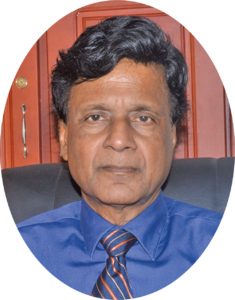 By Ravi Dev
By Ravi Dev
At the World Hindu Conference held this weekend in Chicago to commemorate the 125th anniversary of Swami Vivenananda’s address to the World Congress on Religion, I discussed the challenge of internal differences among the Hindu Diaspora.
The term “Diaspora” itself signals a challenge to united action – one that is more contextual and historically contingent and arises ultimately from the fact we are very fragmented. The Hindu Diaspora, which now number at least 20 million, was formed by migrations during four distinct eras: 1) pre-colonial trade Diaspora; 2) 19th century indentured Diaspora; 3) post-1965 Diaspora from India to the West (modern indentureship) and 4) twice migrants – post 1970s expulsions from the 19th century Diaspora to the West. We need to unpack the term “Diaspora” to appreciate the challenge it presents to united action.
“Diaspora” has only been recently linked with migrants originating from Bharat; starting only in the late 1980s, and was closely identified with Jews. But the experience suggested a typology from the basic characteristics that define the term, literally meaning “to disperse”. These were primarily the memory of the land from where the dispersal emanated and the longing for return to this “motherland”. There conditions were satisfied in the early Hindu migrants and there was also the rejection by the new host society for being different which paradoxically caused a valorisation of the differences even as changes in practiced were engendered in the negotiation to survive. These contingencies created differences in the perspectives, practices and material products in the Hindu Diaspora.
The challenge is to have the Hindus in the Diaspora see each other as one without being seen as “disloyal” to their present nation-states or in their adaptations to local conditions. In each of these countries, the “persistence” of Indian/Hindu culture created plural societies which challenged the unitary premises of political Liberalism – but for each wave of the Diaspora and in each new society there would be carrying action and reaction. The Europeans – especially the British and French – insisted on assimilation of the various groups in each country to the universalised European culture. This creates several hurdles that must be cleared.
The last three waves that left at different times, also did so from different parts of Bharat and from different sociological circumstances; all of which complicate a common perspective. Analytically and objectively, they may all be members of the Indian Diaspora (a “group in itself”) but do not identify as a unitary body (a “group for itself”). The experience of the fourth wave, which brought members of the other waves in contact in metropolitan Western countries highlight the challenge.
In NY, for instance, the post-1965 “Indian” Hindus and the post-1970s Caribbean Hindus, have kept a wary distance from each other, even though they are dubbed “Indians” by most of the other New Yorkers”. Most notably, they hold distinct stereotypes of each other and for instance do not attend each other’s Mandirs or celebrations of festivals.
The Caribbean Hindus are struck by the insistence of the Indian Hindus to define themselves by regional labels, such a Gujaratis or Tamils, or more subtly, by caste. Calling themselves Caribbean or Guyanese Indians, they have jettisoned regional and caste divisions. The latter complain that the former presume they are not the “real deal” and do not mix extensively, individually or institutionally and may even evaluate them negatively.
The above challenge can be addressed – and then extended to the new host societies – by demonstrating through our practices that there is a Hindu alternative to dead end that Liberal “multiculturalism” has found itself in both Europe and the US and in other plural societies that thought it was a “solution”. Unlike the West that tries to fit democracy into the Procrustean motto of E Pluribus unum – out of many, one, Sanaathan Dharma envisages creation as the Divinity declaring, “Eko’ham bahusyaam” – I am one; let there be many.
We therefore accept differences as a fundamental feature of creation, and we therefore accept that it is our civilisational task to deal with them positively rather than seek to obliterate them as “divisions”. We can start practicing this value within the Hindu Diaspora and then spread it outwards to other groups in our specific societies. In the accommodation of diversities, I am proud that on Friday, Bharat legalised LGBT sexual relations.

